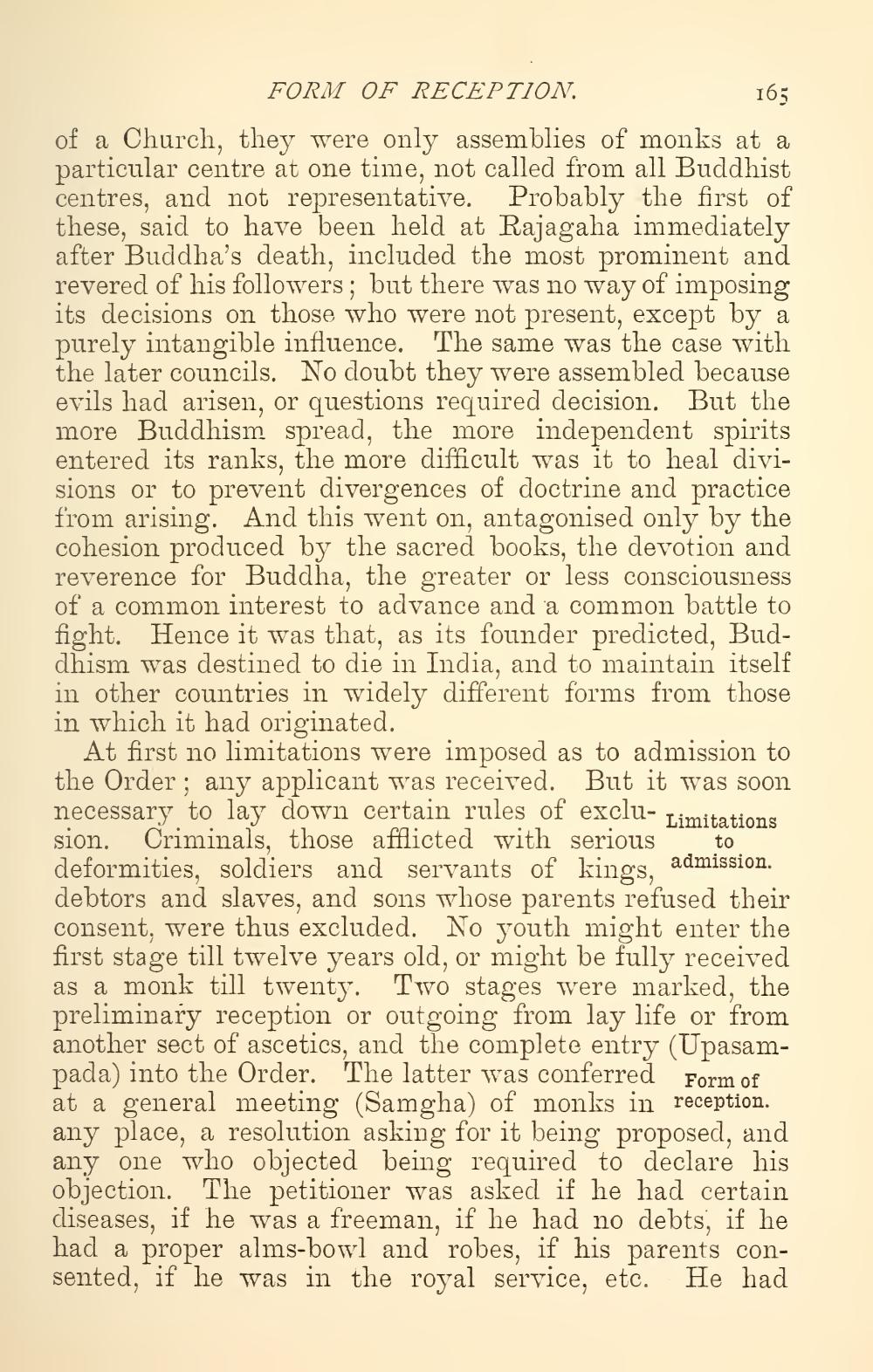________________
FORM OF RECEPTION.
165 of a Church, they were only assemblies of monks at a particular centre at one time, not called from all Buddhist centres, and not representative. Probably the first of these, said to have been held at Rajagaha immediately after Buddha's death, included the most prominent and revered of his followers; but there was no way of imposing its decisions on those who were not present, except by a purely intangible influence. The same was the case with the later councils. No doubt they were assembled because evils had arisen, or questions required decision. But the more Buddhism spread, the more independent spirits entered its ranks, the more difficult was it to heal divisions or to prevent divergences of doctrine and practice from arising. And this went on, antagonised only by the cohesion produced by the sacred books, the devotion and reverence for Buddha, the greater or less consciousness of a common interest to advance and a common battle to fight. Hence it was that, as its founder predicted, Buddhism was destined to die in India, and to maintain itself in other countries in widely different forms from those in which it had originated.
At first no limitations were imposed as to admission to the Order; any applicant was received. But it was soon necessary to lay down certain rules of exclu- Limitations sion. Criminals, those afflicted with serious to deformities, soldiers and servants of kings, admission. debtors and slaves, and sons whose parents refused their consent, were thus excluded. No youth might enter the first stage till twelve years old, or might be fully received as a monk till twenty. Two stages were marked, the preliminary reception or outgoing from lay life or from another sect of ascetics, and the complete entry (Upasampada) into the Order. The latter was conferred Form of at a general meeting (Samgha) of monks in reception. any place, a resolution asking for it being proposed, and any one who objected being required to declare his objection. The petitioner was asked if he had certain diseases, if he was a freeman, if he had no debts, if he had a proper alms-bowl and robes, if his parents consented, if he was in the royal service, etc. He had




